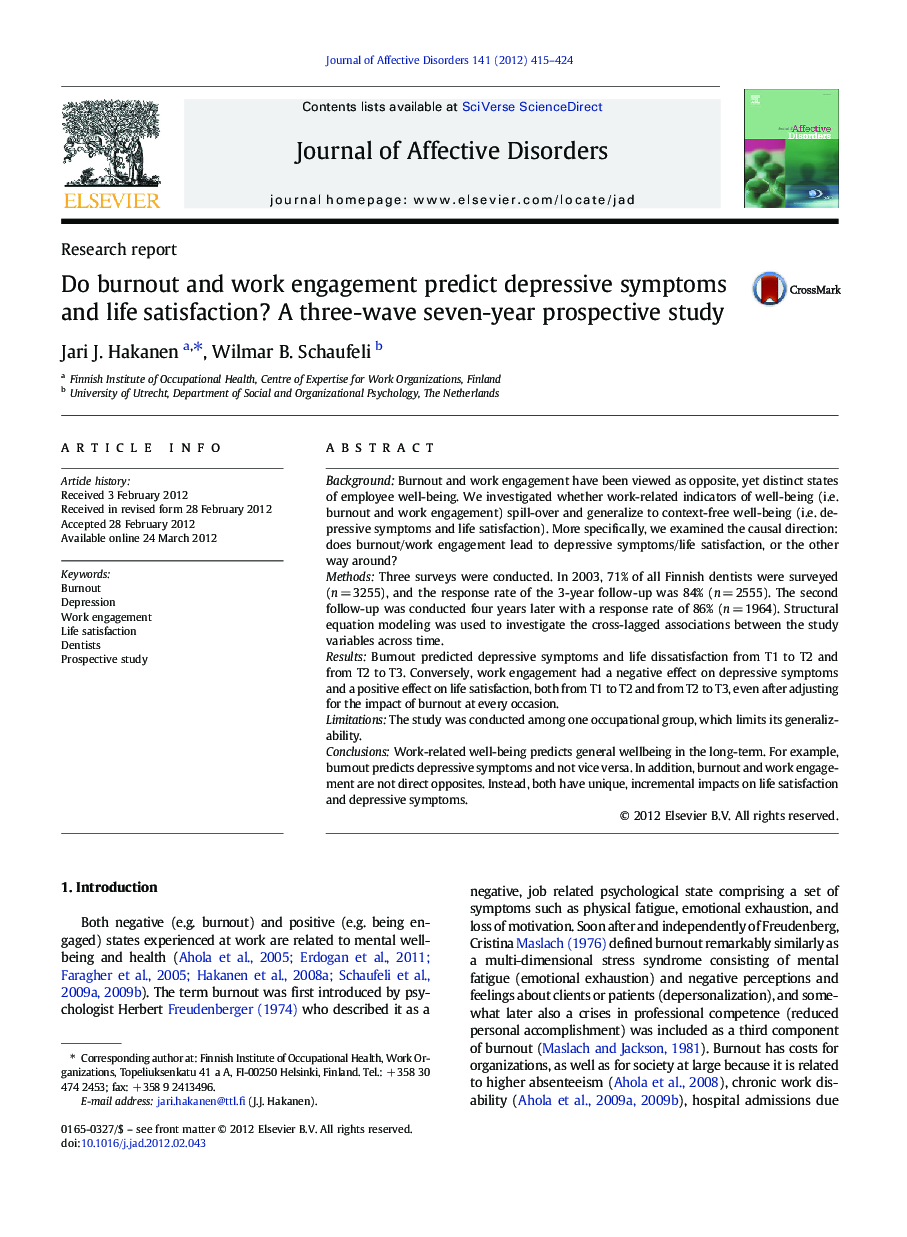| Article ID | Journal | Published Year | Pages | File Type |
|---|---|---|---|---|
| 4186245 | Journal of Affective Disorders | 2012 | 10 Pages |
BackgroundBurnout and work engagement have been viewed as opposite, yet distinct states of employee well-being. We investigated whether work-related indicators of well-being (i.e. burnout and work engagement) spill-over and generalize to context-free well-being (i.e. depressive symptoms and life satisfaction). More specifically, we examined the causal direction: does burnout/work engagement lead to depressive symptoms/life satisfaction, or the other way around?MethodsThree surveys were conducted. In 2003, 71% of all Finnish dentists were surveyed (n = 3255), and the response rate of the 3-year follow-up was 84% (n = 2555). The second follow-up was conducted four years later with a response rate of 86% (n = 1964). Structural equation modeling was used to investigate the cross-lagged associations between the study variables across time.ResultsBurnout predicted depressive symptoms and life dissatisfaction from T1 to T2 and from T2 to T3. Conversely, work engagement had a negative effect on depressive symptoms and a positive effect on life satisfaction, both from T1 to T2 and from T2 to T3, even after adjusting for the impact of burnout at every occasion.LimitationsThe study was conducted among one occupational group, which limits its generalizability.ConclusionsWork-related well-being predicts general wellbeing in the long-term. For example, burnout predicts depressive symptoms and not vice versa. In addition, burnout and work engagement are not direct opposites. Instead, both have unique, incremental impacts on life satisfaction and depressive symptoms.
